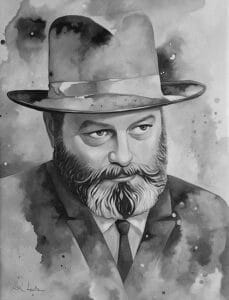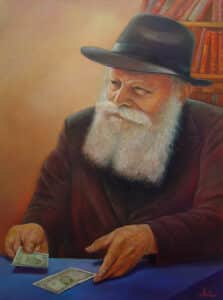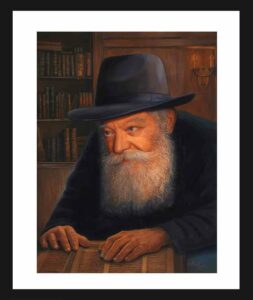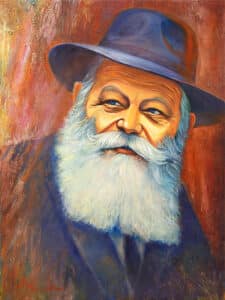The Lubavitcher Rebbe, Rabbi Menachem Mendel Schneerson, never visited Israel after he became the Rebbe in 1951. However, he did visit the Land of Israel prior to his leadership.
Before becoming the Rebbe, Rabbi Schneerson visited Israel once in 1929. During that visit, he traveled with his wife, Rebbetzin Chaya Mushka Schneerson, and spent time visiting holy sites and meeting with various Jewish leaders and communities.
After assuming leadership of the Chabad-Lubavitch movement, the Rebbe remained in New York and never traveled outside the United States. Instead, he encouraged his followers to visit, live in, and strengthen the Jewish presence in Israel through various programs, emissaries, and institutions.
Why he never visited Israel after he became The Rebbe?
- Leadership and Responsibility: As the leader of the global Chabad-Lubavitch movement, the Rebbe saw himself as responsible for the spiritual and material well-being of Jews worldwide. He believed that his physical presence was most needed at Chabad Headquarters in Brooklyn, New York, where he could guide the movement, meet with followers, answer questions, and provide spiritual counsel. Leaving his base could potentially disrupt this flow of guidance and connection.
- Access and Availability: By staying in one location, the Rebbe ensured that he was constantly available to anyone who needed his advice, blessings, or guidance. If he traveled to Israel, it would have limited the access people in other parts of the world had to him. The Rebbe emphasized that as a leader, he must be accessible to all, regardless of location.
- Avoiding Favoritism: The Rebbe expressed concerns that visiting Israel could be perceived as prioritizing one community over others. Since the Chabad movement had emissaries (shluchim) and communities all over the world, he wanted to avoid any sense of favoritism by visiting one country and not another. This sense of equality and fairness was crucial to his philosophy of Jewish unity.
- Theological Considerations: Some believe that there were deeper spiritual and Messianic considerations. The Rebbe was known for his deep belief in the coming of the Messiah (Moshiach) and the ultimate redemption. He may have felt that his first visit to Israel as Rebbe should be under those redemptive circumstances, where the Jewish people would be gathered in their land in peace and unity.
- A Symbolic Stance: The Rebbe’s decision not to visit Israel was also seen by some as a symbolic stance emphasizing that the true redemption would come only when all Jews could safely return to Israel in Messianic times. Until then, he focused on spreading Torah, Jewish education, and the fulfillment of mitzvot worldwide to bring about that redemption.
Overall, the Rebbe’s decision not to visit Israel was carefully thought out, consistent with his leadership style, spiritual beliefs, and commitment to his followers across the globe.
הרבי מליובאוויטש

























